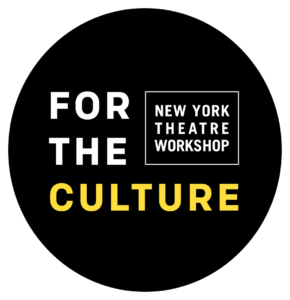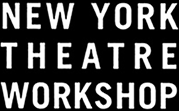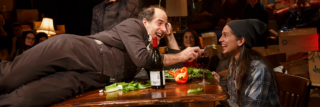Wednesday, Sept 3 – Post-Show
New York Theatre Workshop
Following the show, join us for a conversation diving into the process of creating the ambiance, space, and designs for Saturday Church.
Monday, September 8 @ 5:30-7 PM
Location TBA
Register here!
Join creator and book writer Damon Cardasis for a 90-minute masterclass all about adapting stories. Writer and director of the original Saturday Church film, Damon will talk through his process of creating new work inspired by real life stories, and what changes go into bringing a film to the stage. From adapting his film to a staged musical, to producing documentaries as well as producing, writing and directing narrative films, Damon will discuss his experience of storytelling across multiple mediums and offer an inside look into his multi-faceted range of work. Ideal learning opportunity for writers, storytellers, and creatives of all backgrounds.
Masterclasses are offered on a tiered pay-what-you-can model; if the options listed in the registration form pose any problem for you in participating, please reach out to education@nytw.org and we are happy to welcome you.
—
DAMON CARDASIS is an Emmy and WGA Award nominated writer, director and producer of film, television and theatre. In 2017, Cardasis wrote and directed his critically acclaimed feature debut, Saturday Church, which won multiple festival awards around the world and was nominated for a GLAAD Award for Outstanding Film, Limited Release. He is currently co-writing a musical adaptation of Saturday Church, alongside James Ijames (Fat Ham), with music & lyrics by global pop superstar Sia, additional music by trailblazing DJ Honey Dijon and directed by Whitney White (JaJa’s African Hair Braiding). The musical will receive its World Premiere at New York Theatre Workshop. Previously, Cardasis produced Rebecca Miller’s She Came to Me, starring Peter Dinklage, Anne Hathaway, and Marisa Tomei, which was nominated for a Golden Globe for Best Original Song by Bruce Springsteen, and was chosen as the opening night of the 2023 Berlin Film Festival. Cardasis also produced Miller’s Maggie’s Plan starring Greta Gerwig, Ethan Hawke, Julianne Moore, Bill Hader, and Maya Rudolph, which screened at the Toronto, New York, Sundance and Berlin film festivals. For television, Cardasis was nominated for an Emmy for producing the HBO documentary “Arthur Miller: Writer,” which premiered at the Telluride Film Festival. On Broadway, Cardasis produced The Arthur Miller Centennial–a one-night-only benefit starring Bradley Cooper, Jake Gyllenhaal, Alec Baldwin, Ellen Barkin, Laurence Fishburne, Tony Kushner, John Turturro, and Peter Sarsagaard. Cardasis was profiled in Out Magazine’s annual Tastemaker issue and was also chosen to be part of Out Magazine’s annual OUT 100. In 2009, he co-founded The Lower East Side Film Festival, which continues to showcase low-budget films from around the world.
Wednesday, September 17 – Post-Show
New York Theatre Workshop
Following the performance, join us for an illuminating AfterWords conversation with representatives from National Queer Theatre, Hetrick Martin Institute, The Center, and St. Luke in the Fields. In this meaningful panel, these organizations will highlight their work and shared mission of creating safe spaces for queer youth in New York City.
This panel is co-sponsored by National Queer Theater, Hetrick Martin Institute, The Center, and St. Luke in the Fields.
Wednesday, September 18 @ ~9PM
New York Theatre Workshop – 3rd Floor Rehearsal Studio
Register here!
Join us for Black Theatre Night at New York Theatre Workshop! Following the performance, celebrate the brilliance of Black artistry with an unforgettable post-show gathering featuring music, dancing, and community vibes. Come ready to reflect, connect, and move—because the night doesn’t end when the curtain comes down!
Please note that the 3rd Floor Rehearsal Room is accessed by climbing three flights of stairs. Unfortunately, the building is not equipped with an elevator.



 My Cart
My Cart My Account
My Account Gift Certificates
Gift Certificates Find Us
Find Us




